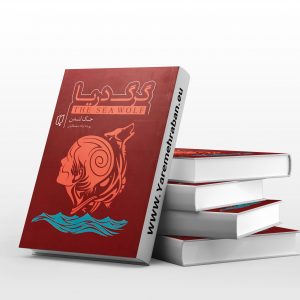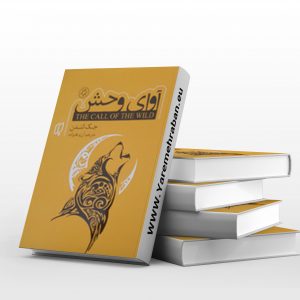Description
Introducing the Homo Deus by Yoval Noah Harari
The God-like Man A Brief History of the Future by Yoval Noah Harari is an Israeli historian and university professor and author of the best-selling book The Wise Man. This book was written in Hebrew in 2015 and translated into English in 2016. This book was published by Nashr-e No with a translation by Zahra Aali in 1397 in Persian.
In a part of the book, God-like man reads:
In the 21st century, humans are trying to become gods and overcome death and old age. Humans are trying to create animals, plants, and even humans based on their own desires. That will involve billions of people.
The book of Homo Deus is a brief history of the future but not a distant future. The future that Harari talks about is 50 years from now, or at most 200 years from now. Harari has divided the book into three sections.
Part One: The wise man conquers the world. The first chapter of the book God-like man deals with the relationship between humans and animals and the factors that cause humans to dominate them. This section answers three questions: What is the difference between humans and other animals? How did the human species conquer the world and is the wise man the superior species or just the bully of the neighborhood?
Part 2: The wise man gives meaning to the world. Harari’s book goes on to mention the linguistic revolution and conventional realities such as countries, borders, money, which led to flexible and wide-ranging cooperation and interaction between human beings. Humans were able to surpass and grow animals because of their belief in these conventional and imaginary realities. In this section, Harari also states that humanism is in fact a religion that worships man instead of God. Three questions in the second part: What kind of world did man create? How did man make sure that in addition to controlling the world, he also gives it meaning. How human praise became the most important religion of the time.
Part 3: The wise man loses control of the situation. Harari explores the possibility that a superpower could replace humans and human societies.
The third part of Harari’s book is dedicated to human unity. Which shows how political organizations gradually consolidated and moved into a global empire.

In the fourth part of the book, he deals with the subject of the scientific revolution and how this change caused human beings to become the hegemons of the world by destroying other species.
Harari believes that we are not much superior to animals on an individual level. But on a collective level, because we know the way to cooperation and flexibility, we are simply superior to animals. Harari invites us to think again and again. Move in front of him.
Yoval Noah Harari with his philosophical and simple pen has been able to bring a new look to the world of science and philosophy by publishing two valuable books.
Some of the cases mentioned in the book Man-God:
“The war is over
Suicide is more likely than being killed in war
The famine disappears
The risk of obesity threatens humanity more than hunger
Death is nothing but a technical problem
Equality disappears – permanence enters
What does the future hold for us?
This is the next stage of evolution
The wise man showed where we came from
“God-like man shows where we are going.”
Homo Deus explores the projects, aspirations, and nightmares that shape the twenty-first century, from overcoming death to creating artificial life. Where are we going from here? And how do we protect the current fragile world from our destructive capabilities?
Dr. Yoval Noah Harari holds a PhD in History from the University of Oxford and teaches world history at Jerusalem University. More than 65,000 people have enrolled in his online course in teaching short human history. His book The Wise Man, published in 2014, became an international phenomenon and has been translated into 40 languages.
The book examines possible future events. And it is argued that during the 21st century, human beings strive for godly joy, immortality, and power. Throughout the book, Harari tries to predict how man will achieve these desires based on past and present events.
Harareri also speculates that 21st century man is in transition from humanism to the beginning of the data age. (Axis information) which at this point is the information that is the most important factor and the axis of everything. In fact, the issue of information flow and free flow of information and the prevention of information censorship and the demand for free access to information are all parts of dataism. Of course, the last sentence of the book is that these are not predictions because history has shown that man has never been a good predictor and are the only assumptions that may occur and that humanity as a whole may choose a different path.
Homo Deus explores the projects and aspirations and nightmares that shape the twenty-first century – from overcoming death to creating artificial bios. Where are we going from here? And how do we protect our current fragile world from our destructive abilities?
The human fingerprint, which was the conceptual focus of the cover design in The Wise Man, has become a digital fingerprint in The Godlike Man.
In this book, the author follows more or less the same views as in the previous book. It looks at history from a macro perspective, explores historical periods, and identifies three general revolutions in human history.
In the first period, man is superior to the innate environment, the omnipresent and omnipotent nature. The criterion of good and evil. But this superior essence can not rule over man except through representatives on earth. These representatives interpret and determine human life and death on behalf of God based on the texts they read. They define sin, punish sin in this world, and explain to him the punishment for his punishment in the Hereafter.
Excerpt from the book “Homo Deus”
Most misunderstandings about science and religion are the result of misinterpretations of religion. It is very common for people to confuse religion with superstition, spirituality, and belief in supernatural forces, or belief in gods. Religion is none of these.
Religion cannot be equated with superstition, because most people are reluctant to call their popular beliefs “superstitions.” We always believe in the “truth”. These are just others who believe in superstitions.
Likewise, few people believe in supernatural forces. Demons are not supernatural forces for those who believe in them. They are part of nature, just like pumpkins, scorpions and germs. Modern physicians consider diseases to be caused by invisible microbes, and voodoo priests consider invisible demons to be the cause of diseases. There is nothing supernatural about this: you make the devil angry and he enters your body and causes pain. What could be more natural than this? Only those who do not believe in demons consider them separate from the natural order of things.
The definition of religion as “belief in God” also has its drawbacks. We think that a devout Christian is religious because he believes in God, while passionate communists are not religious because communism has no god.
But religion was created by humans, not gods, and is determined by its social function, not the existence of gods. Religion is anything that gives superhuman legitimacy to human social structures. Religion legitimizes human norms and values by arguing that they reflect superhuman laws.
Religion claims that human beings are subject to a system of moral laws that they have not invented and can not change. A believing Jew can say that this is a system of moral laws that God has established in the Bible.
A Hindu can say that the laws were created by Brahma, Vishu and Shiva and revealed to human beings by the Vedas. Other religions, from Buddhism and Daoism to Nazism, Communism, and Liberalism, believe that superhuman laws are natural laws, not the product of one god or another. Each naturally believes in a different kind of natural law, discovered and emerged by prophets and intellectuals, from Buddha and Lovaz to Hitler and Lenin.
The book of God-like man is in fact a continuation of the previous book of the same author called Wise Man (Brief History of Man)
1- Introducing the book Homo Deus on YouTube
2- Introducing the book Homo Deus in Aparat














Reviews
There are no reviews yet.